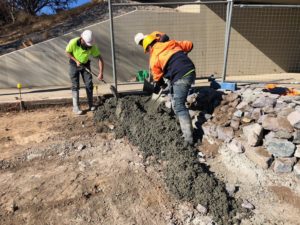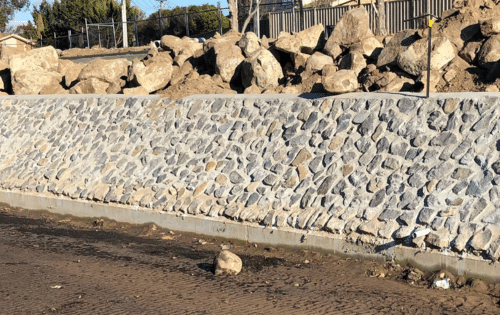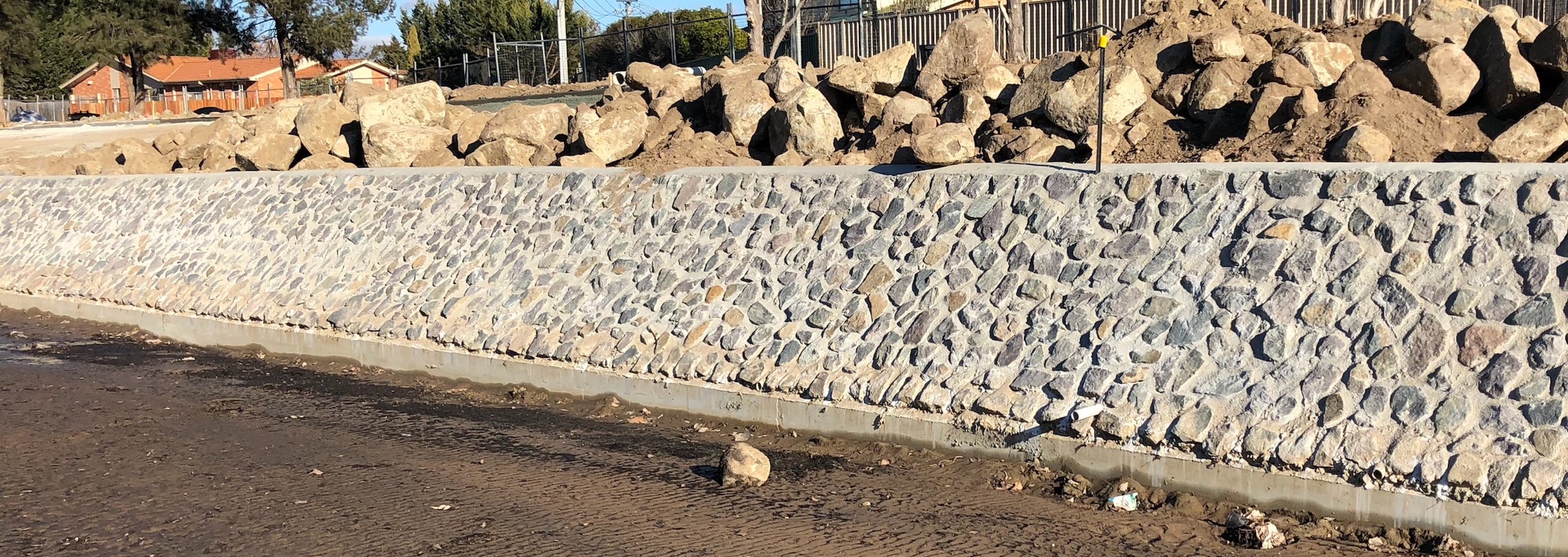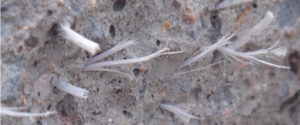Redefining green concrete: Emesh 100% recycled fibres are the new option to replace reinforcing steel
When China imposed their extreme restrictions on the importation of most recyclable plastics in early 2018 the international market was shaken. For over 25 years, Australia amongst other wealthy nations have exported huge quantities of recyclable plastics to China. In previous years China have taken approximately 293,000 metric tonnes of our recycled plastics and 45% of all plastic waste worldwide and now that their doors are closed, Australia is staving off a national waste crisis.
While only 9% of all plastic that is produced across the global market is recycled and many Australian councils have resorted to the mass storage of recyclable materials or redirecting it to landfill, one Australian company has taken this predicament and developed a remarkable, award winning innovation to do their part in using Australia’s recyclable plastic waste within some very clever concrete.
Fibrecon have developed ‘Emesh’, 100% recycled plastic concrete fibres to create a faster, cheaper, safer and greener concrete. Small recycled plastic macro polypropylene fibres are added to concrete to replace shrinkage steel. Emesh completely replaces non-recycled plastic or steel reinforcing mesh and this 100% recycled plastic offers a 90% reduction in CO2 compared to steel mesh.
As of May 2018, Emesh has replaced over 330 tons of steel mesh reducing CO2 by 1000tons and reused over 50 tons of waste plastic. This is equivalent to taking 214 cars off the road for 1 year. With concrete use at approx. 1m3 per person, Australia uses 25 million m3 of concrete per year. Conservatively, 5% is footpath and light pavements – equating to 1.25million m3. “If we replaced all the steel mesh in these pavements with Emesh, we would reduce our CO2 by 125,000 tons annually, and re-use 5000 tons of waste plastic”, said Mark. “It’s an exciting goal for us.”
The following environmental targets have also been achieved:
- 200 tons of fossil fuels reduction.
- 18,000 m3 of water reduction.
- 50 tons of recycled plastic waste usage.
“According to a report prepared for the Department of Environment & Energy in 2016, Australia averages 107kg of plastic waste per person each year. So we have effectively recycled the plastic waste for 467 Australians,” stated Mark.
These Emesh fibres are now being used by many local councils for their green ratings in projects. CE are proud to say that these fibres were recently utilised in the ACT Clean Waterways project to great success we look forward to seeing Emesh being used throughout Australia in the future.

Installation of Emesh on the ACT Clean Waterways Project
Emesh is ideally utilised in projects such as:
- Footpaths
- Bike paths
- Traffic island infills
- Drains and batters –shotcrete or formed
- Landscaping
- Outdoor patios/entertainment areas
- Commercial and industrial light duty slabs
- Ground slabs for small shed builders.
Given the positive environmental impact this product will have on the construction industry, it’s no surprise that Emesh has earned the following awards:
- Winner of the 2015 The Australian Innovation Challenge (Manufacturing, Construction and Infrastructure category) for the project on “Development of recycled plastic fibre to reinforce concrete”
- Winner 2016 Australia’s Most Creative Engineers (Mr Mark Combe) by Engineers Australia under Community category
- Winner 2016 Springer Thesis Award
- Winner 2016 Inaugural James Cook University Prize for Innovation in Higher Degree Research
- Recognised 2017 – Mark Combe – UNSW Inspiring Alumni
Please contact CE for more information on how you can incorporate ‘Emesh’ into your next project.
Sources:



